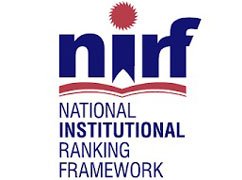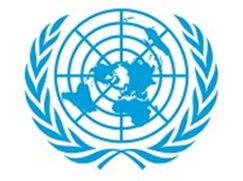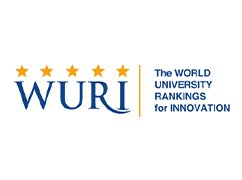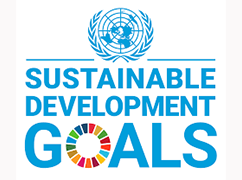
The M.Tech Machine Design program focus on the design, analysis, and optimization of mechanical systems and components. It equips students with advanced knowledge in areas of engineering mechanics, theory of machines, finite element analysis, materials science, thermal sciences, and (advanced) mechanical vibrations. Through hands-on design projects and laboratory work, students gain practical experience and will be able to apply theoretical concepts to address real-world challenges. Industry collaboration is encouraged, providing opportunities for students to work on projects
sponsored by engineering firms and align their knowledge and skill with industry needs.Research opportunities allow students to explore specialized areas in machine design and contribute to the field's advancement. Graduates are well-prepared for careers as mechanical design engineers, product development engineers, finite element analysts, and more, with proficiency in industry-standard design and simulation software. This program combines theoretical foundations with practical applications to meet the demands of the engineering industry.
Applicants may apply for the programme from 8th December 2023 when applications will be available online on the University website till the date applications will officially close.
All applicants must visit the page: https://appstat.christuniversity.in and register by entering NAME (as printed on Class 10 Marks Card), EMAIL-ID and set a password. (The email id and mobile number provided will be used for sending confirmation and application status-update messages). An applicant can apply for as many programmes using the same ID as long as the prescribed eligibility criteria for the specific programme is fulfilled.
Office of Admissions will communicate with the applicant only through university website www.christuniversity.in under the link “Application Status” or click the link: https://appstat.christuniversity.in
Produce evidence of passing the qualifying examination in English medium or have IELTS 6.0 with no sub-score below 5.5 or TOEFL (paper) 550, TOEFL (computer) of 213 or TOEFL (IBT) of 79 scores.
Intensive Certificate course in English Language (Full Time) conducted from March to May each year or One Semester Certificate course in English Language (Part Time) conducted after regular class hours from June to December.
Note: The International Student category fee structure is binding for the full duration of the programme and cannot be transferred /changed in between.
Candidates from the above listed categories having pursued Indian Educational qualification and who may have applied under the Indian States Category will have to pay the International Student Category Fee. The decision of the Admission committee is final.
Candidates seeking admission through International Student category (Foreign Nationals/PIO/OCI) will have a separate application process, with the following options to apply for any programme at Christ University.
Online Application form
Email ID for any clarifications: isc.admission@christuniversity.in
Students who fall under any of the following classifications can apply under NRI Student category and be liable to pay the fees applicable to the category for the entire duration of the programme.
Note: If only condition 5 is satisfied, and not conditions 1 to 4 above,NRI student category fee will be applicable only for the first year.
Email ID for any clarifications: nri.admission@christuniversity.in
Selection process results will be available on https://appstat.christuniversity.in Selected candidates will receive an E-Offer of admission. The offer will be valid upto the date mentioned in the Offer of admission.
All selected candidates must note that admission is provisional and subject to University rules.
Selected candidates must download the offer of admission on the ‘Application Status’ link on the University website.
An undertaking for pending original documents unavailable currently [applicable only for candidates writing/passing their exam in March – June – 2024], must be submitted to the Office of Admissions. These documents must be submitted on or before 20 August 2024.
All admitted students must open an account at South Indian Bank, CHRIST (Deemed to be University) Branch as part of the admission process and must carry relevant ID proof (Aadhar Card and Pan Card).
The University ID card is a smart card, which is both an ID cum ATM card with a chip containing the student personal details. All transactions within the University campus after commencement of classes, including fee payment will be processed only through this card. It is also an access card for Library and other restricted places.
Selected candidates who fall under International student category (ISC) should register with the Foreigner Regional Registration Officer (FRRO / FRO) of the Local Police in Bengaluru, India within 14 working days from the date of admission or arriving in Bengaluru.
For any queries at any given time during the application and admission process, you may contact us through the following Email ID’s:
The Office of Admissions,
CHRIST (Deemed to be University), Hosur Road,
Bengaluru – 560 029, Karnataka, INDIA
Phone
+91 92430 80800
+91 80 4012 9400
Email IDs
Indian candidates: admissions@christuniversity.in
NRI candidates: nri.admission@christuniversity.in
International: isc.admission@christuniversity.in
CHRIST (Deemed to be University)
Kanmanike, Kumbalgodu, Mysore Road,
Bengaluru – 560 074, Karnataka, INDIA
CHRIST (Deemed to be University),
Mariam Nagar, Meerut Road,
Delhi NCR Ghaziabad – 201003
Phone
1800-123-3212
CHRIST (Deemed to be University)
Hulimavu, Bannerghatta Road,
Bengaluru – 560 076, Karnataka, INDIA
Phone
+91 080 4655 1306
+91 080 4655 1306
Email
admissions.bgr@christuniversity.in
CHRIST (Deemed to be University)
Nagasandra, Near Tumkur Road,
Bengaluru 560 073, Karnataka, INDIA
CHRIST (Deemed to be University),
Christ University Road, 30 Valor Court, PO Dasve Lavasa, Mulshi, Pune – 412112, Maharashtra
Phone
1800-123-2009
Between: Monday to Friday: 09:00 AM to 04:00 PM,
Saturday: 09:00 AM to 12:00 PM
(Office remains closed on Sundays, Government Holidays and Any special events)
For any queries at any given time during the application and admission process, you may contact us through the following Email ID’s:
APRIL ENTRANCE TEST TIMINGS (IST) : 09:00 AM | 12:00 PM | 03:30 PM
Students pursuing an International curriculum must note that eligibility is according to AIU stipulations.
| Year | # Karnataka | Other Indian States | NRI | SAARC / AFRICA / PIO / OCI / ASEAN | Other Foreign Nationals | Time of Payment |
|---|---|---|---|---|---|---|
| 1 | 85,000 INR | 105,000 INR | 160,000 INR | 3,500 USD | 4,000 USD | Within seven days of declaration of the Selection Process Result |
| 2 | 85,000 INR | 105,000 INR | 160,000 INR | 3,500 USD | 4,000 USD | On or before March 15, 2025 |
# The fee for Karnataka domicile students, as indicated in the table, is the actual fee payable and excludes the scholarship amount.
It is to be noted that though the fee is fixed for two years, there may be a periodic nominal increase to meet the rise in costs.
(The above condition is not applicable to NRI and candidates applied under NRI Category).
At the end of graduation, the graduates of the Mechanical and Automobile EngineeringProgram are able to
Address
Dharmaram College Post, Hosur Road, Bengaluru – 560029, Karnataka, India
Telephone
+91 804012 9100 / 9600
Send us a Fax
40129000
Mail Us At
mail@christuniversity.in







